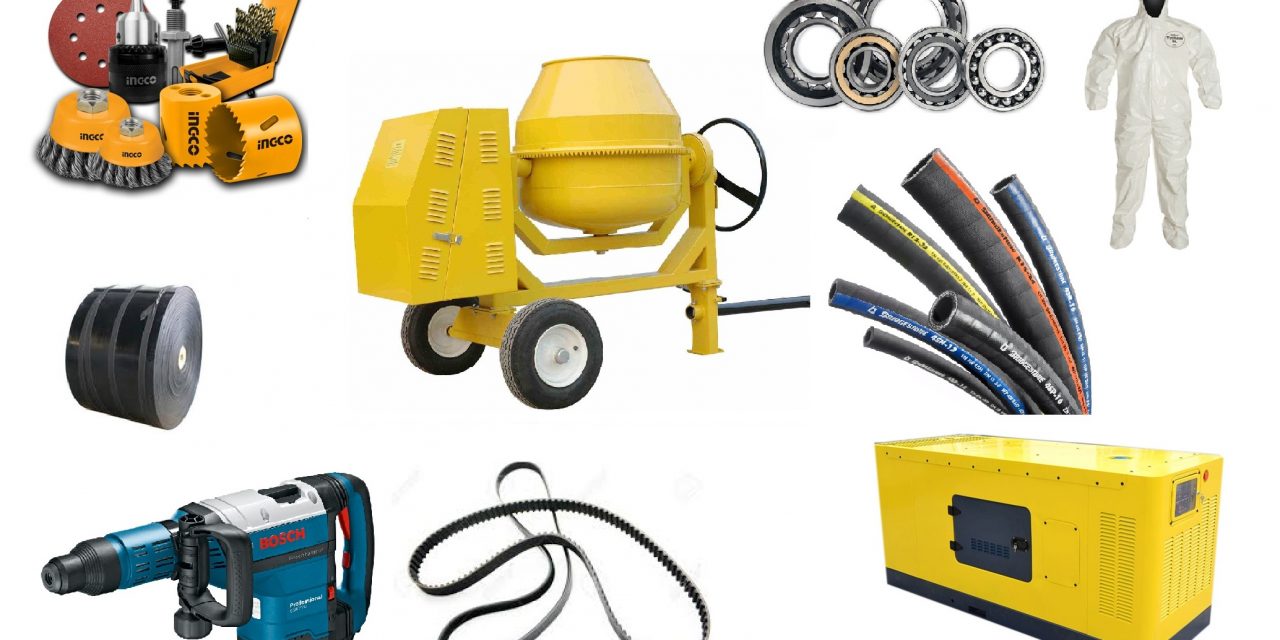Zimbabwe is a country with a lot of mineral wealth—so much that we had to make space for it on the national flag. Mining contributes an estimated 8% of the country’s GDP. Countless artisanal miners are digging for various minerals—usually gold—in almost every corner of the country. This is partly due to the country’s economic misfortunes over the last two decades, through which many discovered that mining is one of the most resilient industries that one can operate in. Consequently, many small-to-medium-sized mining operations sprouted in almost all the country’s mining areas.
Unfortunately, there are only so many mining opportunities to go around, even in Zimbabwe, and not everyone was cut out to be a miner. Luckily there are ways, other than mining, of profiting from the country’s vast mineral wealth and the activity taking place around it. One of these is the supply of machinery, equipment, chemicals and various other consumables to the miners. Supplying miners with what they need to carry out their operations can prove to be a very lucrative line of business—one which is possibly able to weather the country’s all too frequent bad economic patches about as well as mining itself.
Gather information
To supply miners—whether companies or individuals—with what they need, you need more than just a passing knowledge of mining. While coming from a mining background (or employing someone who does) would certainly offer a huge advantage—especially if said background is in the same mineral or scale of operations as your target market—you can also conduct research yourself to find out what miners need. This research is best carried out on the ground by interviewing actual miners—find out the kinds of processes and equipment most commonly used in the country instead of just relying on what you read.
Picking a location
When deciding where to locate your mining supplies business you generally have to choose between two options—either you put it as close as possible to your most likely customers or at a central location such as a major town or city. The first option is only practical when a mining area has a lot of mining activity being carried by many different parties otherwise your operation would soon find itself stuck with only a limited pool of potential customers or even, almost just as bad, being over-dependant on just a few mining concerns for business. Picking a location in such a manner is usually best for when you are targeting areas where artisanal miners abound and they are also your target market. When targeting actual mining companies, of which they tend to be only a few even in the most mineral endowed of areas, it is a better idea to locate your business in a centralised location such as a town or city through which you can cast a larger net for potential customers.
Finding suppliers
While some of the less sophisticated equipment that is used in local small-scale mining can and is fabricated locally, some of it has to be imported. Fortunately, the mining industry has many trade journals—physical and online ones, local and international—dedicated to it. Most of these journals usually contain advertisements from suppliers and manufacturers of some of the most commonly used types of equipment. Besides keeping an eye out for advertisements, you can also use sites such as Alibaba to find suppliers.
NB: Dealing in certain supplies used in mining is governed by the law. For instance, a license from the Environmental Management Agency is required for one to import, transport, store, or sell hazardous chemicals such as cyanide (which also happens to be extensively used in the extraction and processing of old).
Assessing the competition
Knowing who your competition is matters a lot, particularly more so for a budding business or one which is still in the planning stages. Your competitors will set the pace and provide a benchmark against which you can measure your business—its operations, offerings and performance. If you, however, discover that you have no competition in your chosen location, it can mean either one of two things: you are the first to discover the potential of that market or are more likely trying to start a business where there is no real market for your products or services.
Choosing a target market
As mentioned earlier, not only do mining operations come in all sizes—from one-man operations to entire companies which use earth moving machinery—but they also mine any of many minerals. Different minerals require different supplies and equipment in the same way those requirements differ according to the size of the mining operation. When you are the supplier it is often a good idea to choose a narrow target market, especially if your business is just starting. This is because it is almost always easier to try to first focus on supplying equipment to a smaller market segment (e.g. gold miners or just artisanal miners) instead of trying to cater to miners of all sizes and minerals at the same time.









i have a link of mining equipments
I supply all industrial equipments contact culworthenterprise@gmail.com..